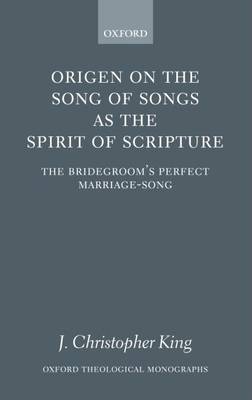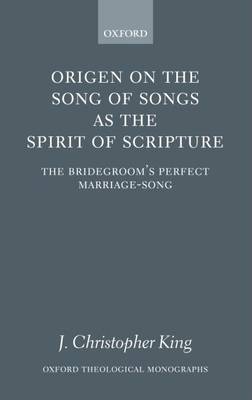
- Afhalen na 1 uur in een winkel met voorraad
- Gratis thuislevering in België vanaf € 30
- Ruim aanbod met 7 miljoen producten
- Afhalen na 1 uur in een winkel met voorraad
- Gratis thuislevering in België vanaf € 30
- Ruim aanbod met 7 miljoen producten
Zoeken
Origen on the Song of Songs as the Spirit of Scripture
The Bridegroom's Perfect Marriage-Song
J. Christopher (past Member of the Bishop's Staff, Espiscopal Di
€ 335,95
+ 671 punten
Omschrijving
Christian interpretations of the "Song of Songs" have long depended upon the allegorical reading developed by Origen of Alexandria (c185-c254). This study aims to show that Origen's Commentary and two Homilies on the "Song of Songs" portray the "Song of Songs" as the biblical book that reveals the 'spirit' of Scripture with greater intensity.
Specificaties
Betrokkenen
- Auteur(s):
- Uitgeverij:
Inhoud
- Aantal bladzijden:
- 306
- Reeks:
Eigenschappen
- Productcode (EAN):
- 9780199272181
- Verschijningsdatum:
- 6/10/2005
- Uitvoering:
- Hardcover
- Afmetingen:
- 146 mm x 225 mm
- Gewicht:
- 506 g

Alleen bij Standaard Boekhandel
+ 671 punten op je klantenkaart van Standaard Boekhandel
Beoordelingen
We publiceren alleen reviews die voldoen aan de voorwaarden voor reviews. Bekijk onze voorwaarden voor reviews.







